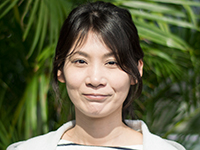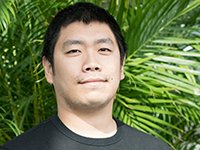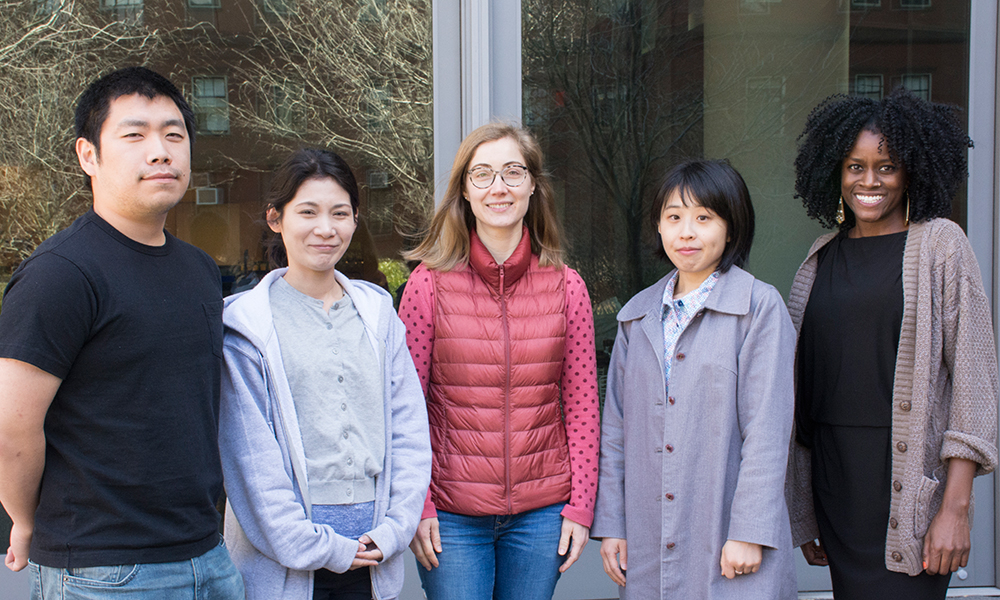Five MCB postdoctoral fellows have been awarded fellowships from organizations and private foundations that support interdisciplinary basic research. Jadiel Wasson of the Mango Lab received a prestigious Helen Hay Whitney Fellowship, while Sara Matias of the Uchida Lab received the Human Frontier Science Program’s Long-Term Fellowship. Yasuko Isoe of the Engert Lab received both the Uehara Memorial Foundation Overseas Fellowship and the Japan Society for the Promotion of Science. Iku Kimura of the Uchida Lab and Tadasu Nozaki of the Kleckner Lab also received fellowships from the Japan Society for the Promotion of Science.

Jadiel Wasson (Mango Lab)
Project Title: Mechanistic elucidation of RNAi enhancement via maternal chemosensation
Fellowship: Helen Hay Whitney Fellowship
The Helen Hay Whitney Fellowship supports research into the fundamentals of biology, and Wasson will be using her fellowship grant to investigate the nature of inheritance. “I’m still in shock but honored that they considered me a worthy candidate,” Wasson says. “What makes this fellowship exciting is the yearly conference that brings current and several past fellows together to interact and build a tight-knit community. This is a great opportunity to meet other scientists from diverse backgrounds and other institutions and hear about some of the cool things they are pursuing.”
Wasson will investigate “alternative” mechanisms of inheritance. She is particularly interested in gene silencing and how the chemicals a mother encounters in her environment may shape gene silencing patterns in offspring. “My work addresses how everyday interactions with the environment can affect subsequent generations,“ Wasson explains. “My main questions that drive my work are: What constitutes inheritance and what types of information can be inherited?”
To the Harvard MCB community, Wasson would like to say: “Thank you for creating an environment where I can grow and learn so much about disparate research topics that fall under the umbrella of Molecular and Cellular Biology!”

Sara Matias (Uchida Lab)
Project Title: Projection-specific dopamine-dependent synaptic mechanisms in the striatum
Fellowship: Human Frontier Science Program’s Long-Term Fellowship
The Human Frontier Science Program’s postdoctoral fellowships are designed to enable early-career scientists to develop interdisciplinary research skills. Matias says she is “super happy” to receive the fellowship, “not only because it is kind of a reassurance that my idea is interesting and worth exploring but also because it opens up new avenues for my future.”
Matias’ work focuses on the neurotransmitter dopamine. Past research has shown that dopamine is crucial in many cognitive processes, including learning and motivation. But, of course, the brain is capable of many different types of learning. Matias hopes to find out whether dopamine always affects neurons in the same way across different cognitive processes or whether its behavior varies.
“Figuring out how dopamine can coordinate so many different but related brain functions is really important, not only to better pinpoint what goes wrong in different pathological conditions, but also to figure out how the brain learns to make sense of the world,” Matias says.

Yasuko Isoe (Engert Lab)
Project Title: Analysis of the brain-wide neural networks controlling spacing behavior in larval medaka fish
Fellowships: The Uehara Memorial Foundation Overseas Fellowship and the Japan Society for the Promotion of Science Postdoctoral Fellowship
Isoe is the recipient of two fellowships that support Japanese researchers working overseas. “Studying abroad was one of the biggest desires in my life when I was a PhD student,” says Isoe. “And those fellowships gave me a ‘ticket’ to reach Harvard University from Japan. I really appreciate the funding organizations giving me this chance.”
Her research will use the medaka–also known as the Japanese rice fish–as a model organism for studying how animals make decisions about where to stand (or, in this case, where to swim).
The way animals position themselves in social groups is important, because it profoundly shapes interactions. “When we talk about the relationship with others, we often describe it with distance-related words, such as, ‘she is my closest friend’ or ‘I feel more comfortable keep[ing] an appropriate distance from him’. Thus, there is an important link to the distance and social relationships,” Isoe says. “However, for the whole brain level, it remains unknown how we calculate the distance to others, evaluate it, and decide to get close to them or not.”
Isoe will create a line of transgenic fish with special neurons that allow for easier brain imaging. She is looking forward to meeting her new colleagues at MCB and to hearing about new research at the seminars.

Iku Kimura (Uchida Lab)
Project Title: Opto-observational technology reveals the neural basis of motivation
Fellowship: Japan Society for the Promotion of Science Postdoctoral Fellowship
Kimura is the recipient of a fellowship that supports early career Japanese scientists doing research abroad. She sees the fellowship as evidence that people are interested in her techniques and insights.
As a neuroscientist, Kimura is interested in how the brain weighs risks and rewards, because those calculations influence many aspects of behavior. “My question is how the brain is computing the cost-benefit balance,” she says . “And my goal is finding a neural mechanisms underlying the cost-benefit decision making.”
She will use cutting edge neuroimaging technology to explore the topic, which has fascinated scientists for decades. “Cost-benefit computation is one of fundamental components of decision making that we are doing every day and every minutes,” she says. “Revealing neural mechanisms underlying such a fundamental function would bring us a deeper understanding across fields (neuroscience, economics, psychiatry).”

Tadasu Nozaki (Kleckner Lab)
Project Title: Live-cell imaging of the interaction between homologous chromosomes during meiosis
Fellowship: Japan Society for the Promotion of Science Postdoctoral Fellowship
Nozaki also arrives at Harvard from Japan under the auspices of a fellowship from the Japan Society for the Promotion of Science. He is grateful for the honor. “This fellowship gave me the chance to start the new and challenging research in Harvard,” he says.
Nozaki’s research aims to illuminate what chromosomes do during meiosis. Researchers have known for a long time that chromosomes somehow pair up with their homologue, but the details and mechanics of how chromosomes do that aren’t as well understood. “Google can search and show the web site that you want to see on the vast and infinite internet using PageRank algorithm,” Nozaki explains, so he wonders, “How does the cell search the DNA sequence that has a target information on the huge chromosomes?”
Outside of the lab, Nozaki’s interests include the martial art kendo. He’s looking forward to spending time discussing science and baseball over beers during his time in the U.S.
by Diana Crow


